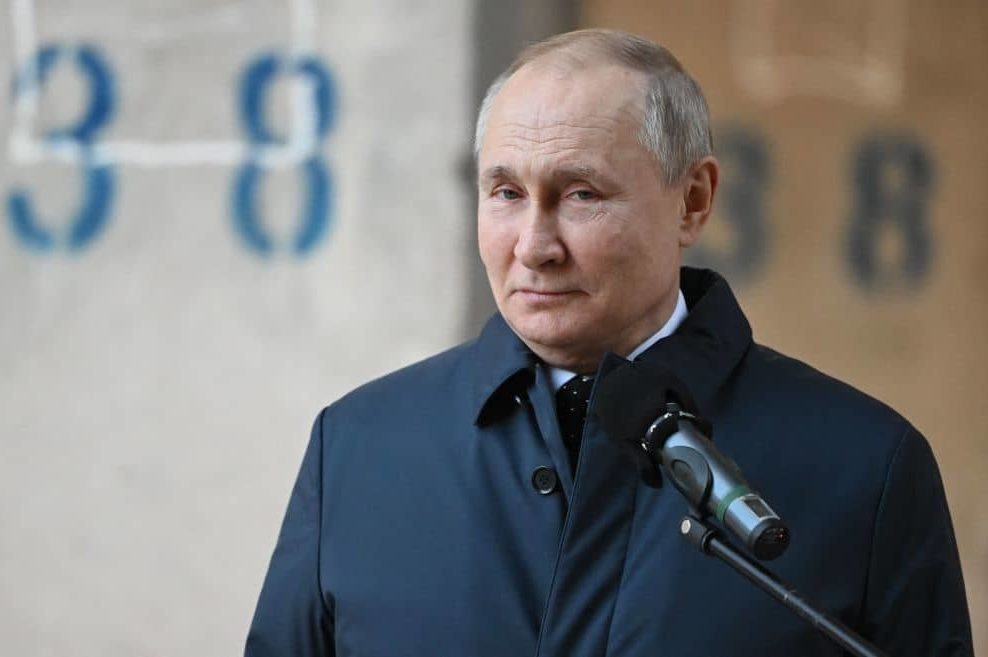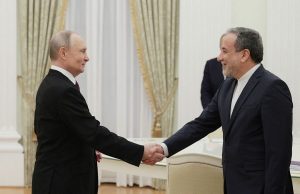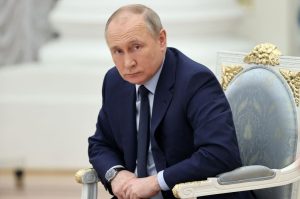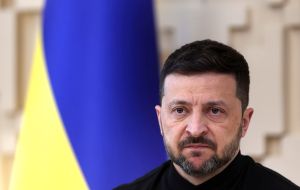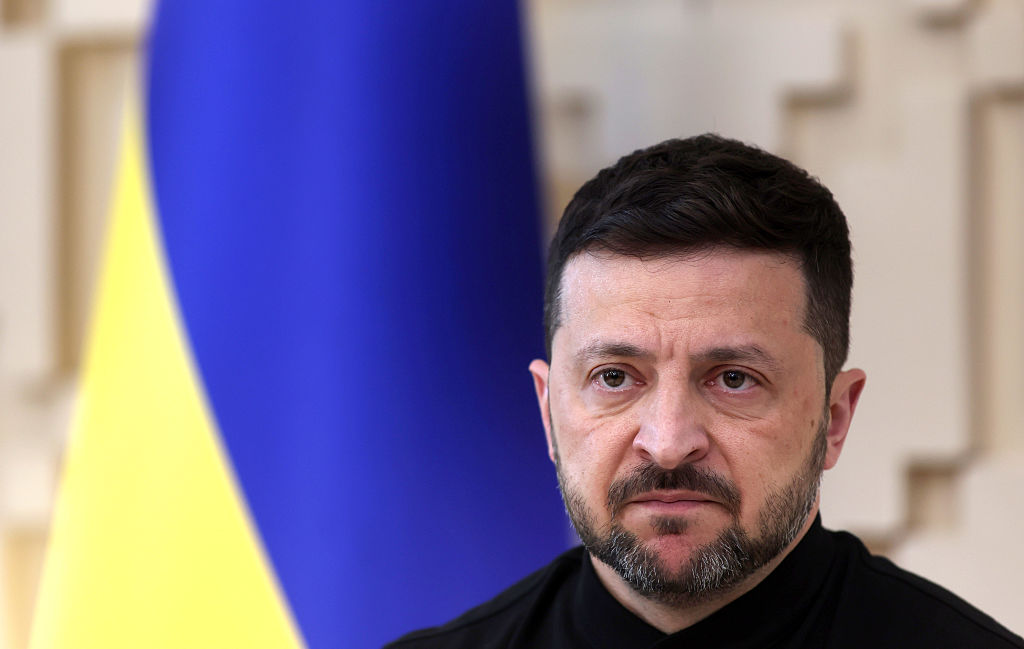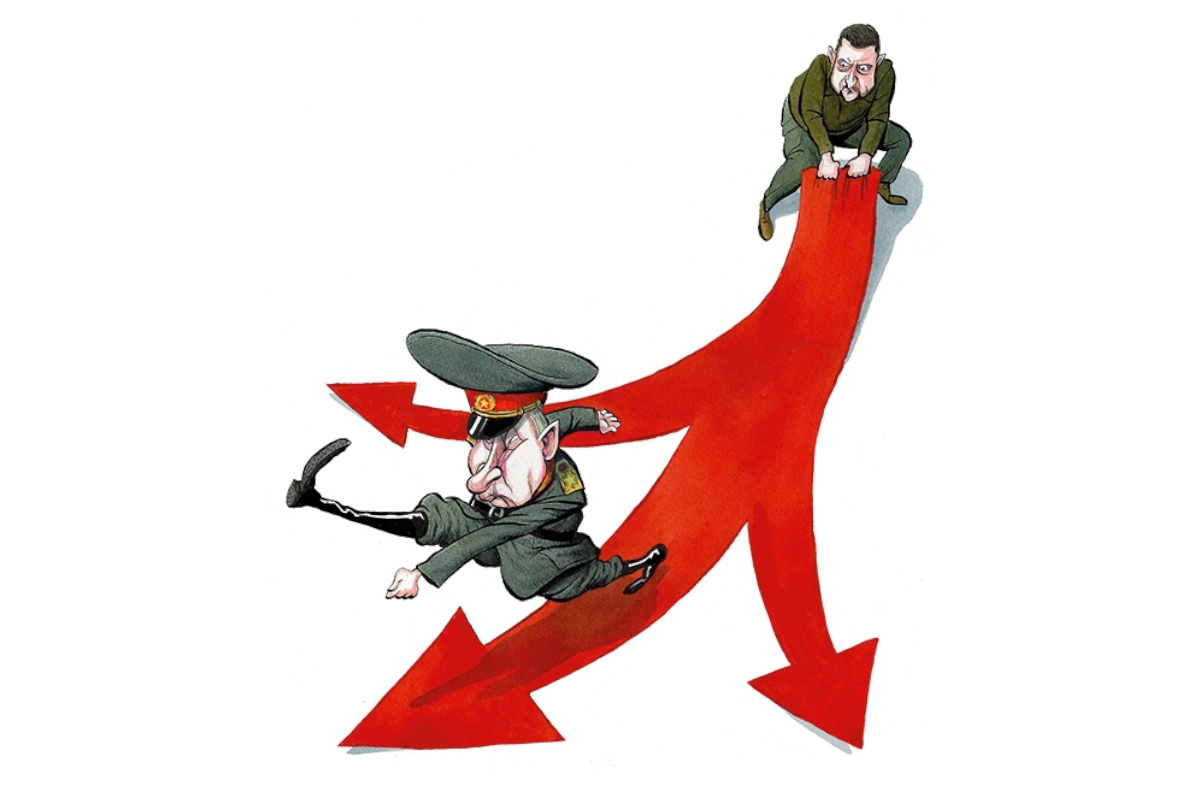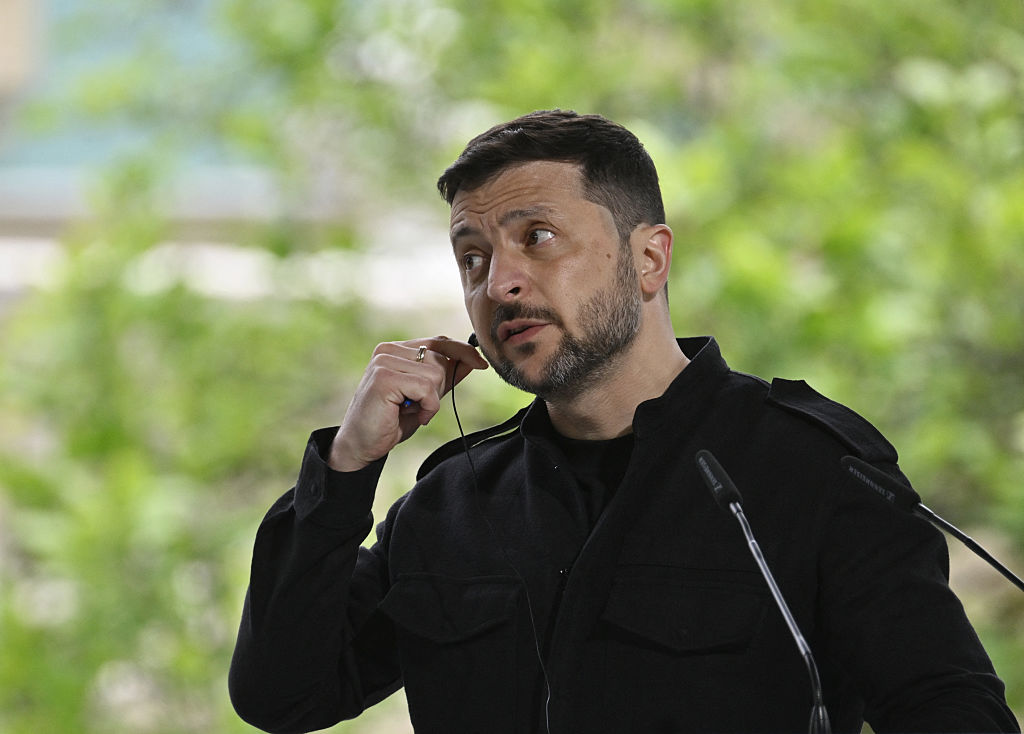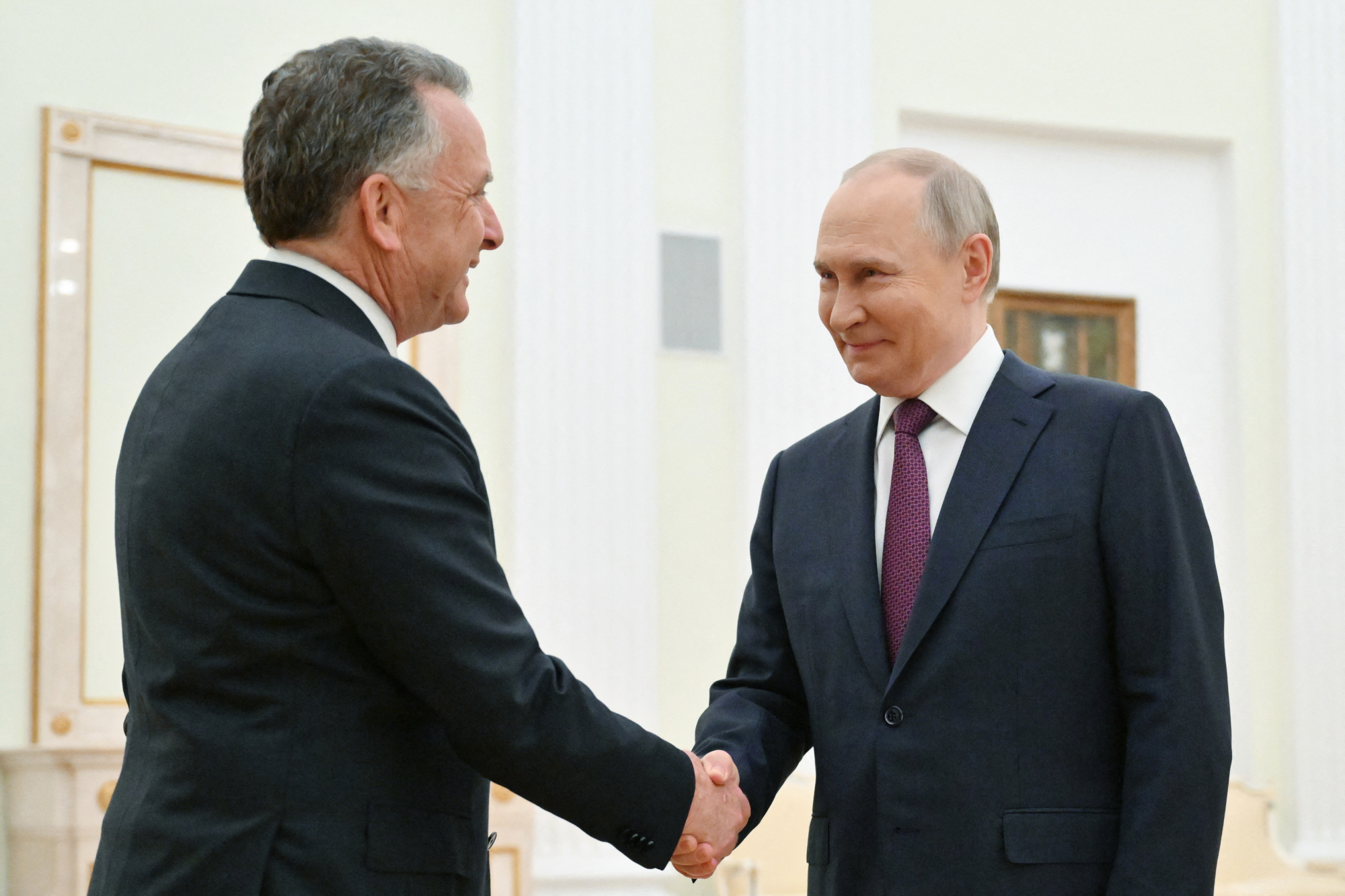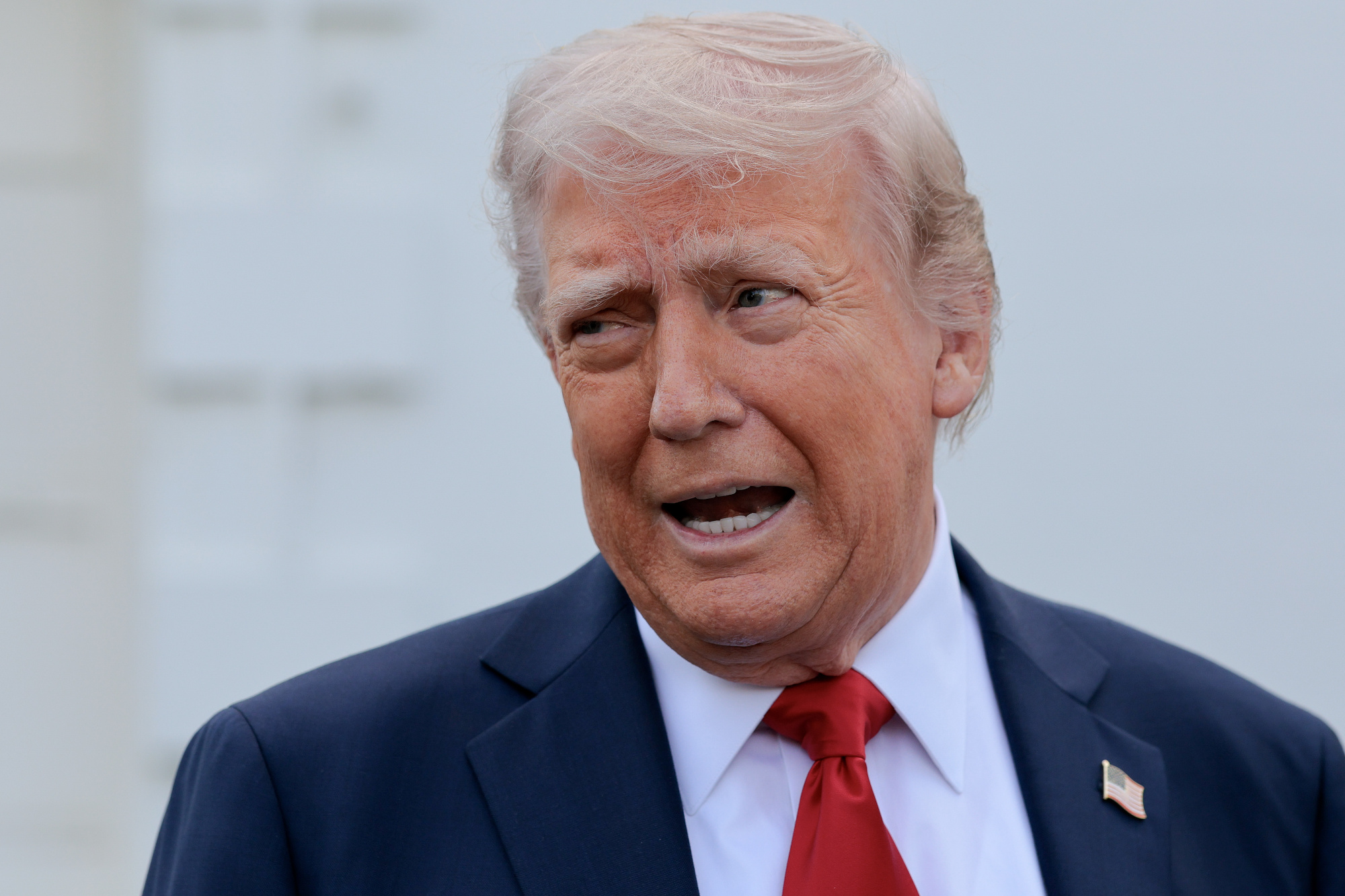In all my years covering right-wing politics, I’ve met an odd cast of characters: ethnonationalists, archeofuturists, transhumanists, sedevacantists, Austrofascists, neo-reactionaries, incels, identitarians, Proud Boys, Groypers, even Jeb Bush. Yet I’ve never met a Putinist. Not a one.
Before we go any further, I want to be clear on this point: Putinists don’t exist outside the former Soviet Union. How could they? Putin himself is a pure nationalist. He embraces the whole ball of contradictions that is Russia. He’s equal parts tsarist and Leninist. Whatever hodgepodge ideology you want to call Putinism, it can’t be applied to the United States. You may as well try golfing with a shovel.
Now, I’m sure you’ve encountered a Putin fanboy on the internet. I’m also sure he’s in his mid-thirties, lives alone, and converted to Orthodoxy last Thursday. But those people don’t exist in real life. Nobody ever thought that Putin was the second coming of Charlemagne. There is not, and never has been, a “Putin wing” of the GOP. That’s a lie.
Having said all that, it’s true that Putin did give many of us hope. As our own senators openly questioned the right of Catholics to serve in the US government, Putin’s Russia suggested that our post-Christian future wasn’t necessarily an anti-Christian future.
Though not a Christian himself, Putin clearly finds Christianity quite useful. He’s loyal to the Russian Orthodox Church because he’s a nationalist. There is no Russia without the Church. Orthodoxy is Russian-ness. He’s right, as far as that goes. And there are plenty of us in the West — the dreaded “illiberals” — who, in all innocence, wish our leaders could make the same connection.
For those of you who missed the debate over illiberalism, I’m sorry to burst your bubble. Basically, illiberals say that Western politics is wrong to place so much emphasis on personal freedom, small government, etc. They believe that a paternal state is needed to advance the common good. Most illiberals support protective tariffs and trust-busting. Others (like the Catholic integralists) go further and say the government should ban pornography and promote public worship.
I’m not quite a liberal, whether or not anyone would call me an illiberal. Yet Russia’s invasion of Ukraine surely marks the end of our illiberal moment. Nobody watching this war unfold could help but develop a healthy fear of state power. Nobody with an internet connection could seriously believe that liberalism is the single greatest threat to humanity today.
An autocrat, consumed by pride and greed, is terrorizing the civilians of another country. Suddenly, terms like “conservative” and “liberal” are meaningless. Politics is irrelevant. As G.K. Chesterton said, “What is wrong with the world is the devil, and what is right with the world is God.”
What’s frustrating is that we had to learn this same lesson less than a hundred years ago, during the Action Française crisis of the 1920s.
Action Française is a French monarchist group founded by the philosopher Charles Maurras. Though an atheist, Maurras believed that le pays réel — “the real country,” the true France — was integrally Catholic. Trying to govern such a nation on secularist principles, he warned, is like trying to run a car with laundry detergent. It just won’t work.
In that, he wasn’t wrong. Yet in 1926, Pope Pius XI placed some of Maurras’s writings on the Index of Forbidden Books and ordered Catholics to disassociate with Action Française. Pius believed that any effort to reduce Catholicism to a set of political or social doctrines would ultimately hurt the Church’s true mission: saving souls for Christ.
Many French Catholics were outraged. Nobody thought Maurras was a great metaphysician. They didn’t look to him as a moral authority. Pius simply didn’t understand the situation on the ground, they said. Otherwise, he wouldn’t work so hard to alienate the Church’s best political friend. Cardinal Louis Billot, himself a fierce anti-liberal, resigned from the Sacred College in protest.
Yet others rose to the pope’s defense. Among them was the Thomistic philosopher Jacques Maritain.
Maritain knew Maurras and admired him deeply. Still, he said, “I can only think of Charles Maurras with sorrow.” The founder of Action Française was “devoured with a passion for order and the supreme laws of authority.” His mind was stuck in the mire of politics. He’d lost sight of the “primacy of the spiritual” — a primacy the French Revolution had fought to destroy.
That’s why Maurras could never truly be an anti-liberal. He was too obsessed with things of this world. After all, his motto was La politique d’abord! — “Politics first!”
It’s not hard to see why so many French Catholics (like Billot) were distressed by the censure. Nor is it surprising that Maritain was called naïve and condescending. He was a “quietist,” they said. Yet ultimately he and Pius were vindicated. Having risen to prominence as an anti-Dreyfusard, Maurras became a staunch supporter of the Pétain regime. When Maurras finally ran afoul of the Nazis, it was only because he hated Germans more than Jews.
That’s not to say we have to rally around liberalism, of course. Though maybe it was wrong to define ourselves against liberalism. I don’t like capitalism, but I find that people who call themselves anti-capitalists usually go too far in the other direction. They’re a little too quick to defend places like Cuba and North Korea.
So even if we never come around to liberalism again, we probably shouldn’t team up with folks who use words like liberty as a swear, or who only write phrases like “limited government” in scare quotes. It doesn’t matter if he’s a Russian autocrat or an American journalist. He’s probably not quite sound.
More than that, I think Maritain was right. The problem with “illiberal Christians” is that we spend too much time thinking about government. We’re too anxious about regaining our political power. As the Good Book says, “Put not your trust in princes, nor in the son of man, in whom there is no help.”
Besides — there’s nothing more liberal than a politician.



